Fast Facts
- When: 16th August 2023
- Where: Stadio Georgios Karaiskakis, Piraeus, Greece
- Watch: TNT Sports
- Official Website: UEFA Super Cup
The UEFA Super Cup is a game played every year between the winners of the previous season’s Champions League and Europa League.
The game is played at the start of the football season and although not played with the same intensity as more competitive matches, the trophy is still seen as a huge honour to hold with some of the biggest clubs in Europe crowned champions since the first contest was played in 1973.
The 2023 Super Cup will be contested by Champions League winner Manchester City and Europa League champions Sevilla. This is City’s first appearance in the Super Cup. Sevilla have played on six occasions, winning once and losing five times.
Below we will have the top betting offers available as well as our predictions on the big match.
Existing Customer Free Bets & Money Back Offers
Please Note: This event has now ended.
Event Stats
UEFA Super Cup Results – 2000 to 2022
| Year | Champions League Winner | Score | Europa League Winner |
|---|---|---|---|
| 2022 | Real Madrid | 2-0 | Eintracht Frankfurt |
| 2021 | Chelsea | 1-1 (AET, 6-5 pens) | Villarreal |
| 2020 | Bayern Munich | 1-1 (2-1 AET) | Sevilla |
| 2019 | Liverpool | 2-2 (AET, 5-4 pens) | Chelsea |
| 2018 | Real Madrid | 2-4 (AET) | Atletico Madrid |
| 2017 | Real Madrid | 2-1 | Manchester United |
| 2016 | Real Madrid | 3-2 (AET) | Sevilla |
| 2015 | Barcelona | 5-4 (AET) | Sevilla |
| 2014 | Real Madrid | 2-0 | Sevilla |
| 2013 | Bayern Munich | 2-2 (5-4 pens) | Chelsea |
| 2012 | Chelsea | 1-4 | Atletico Madrid |
| 2011 | Barcelona | 2-0 | FC Porto |
| 2010 | Inter Milan | 0-2 | Atletico Madrid |
| 2009 | Barcelona | 1-0 (AET) | Shakhtar Donetsk |
| 2008 | Manchester United | 1-2 | Zenit St Petersburg |
| 2007 | AC Milan | 3-1 | Sevilla |
| 2006 | Barcelona | 0-3 | Sevilla |
| 2005 | Liverpool | 3-1 (AET) | CSKA Moscow |
| 2004 | FC Porto | 1-2 | Valencia |
| 2003 | AC Milan | 1-0 | FC Porto |
| 2002 | Real Madrid | 3-1 | Feynoord |
| 2001 | Bayern Munich | 2-3 | Liverpool |
| 2000 | Real Madrid | 1-2 (GG) | Galatasaray |
About The UEFA Super Cup
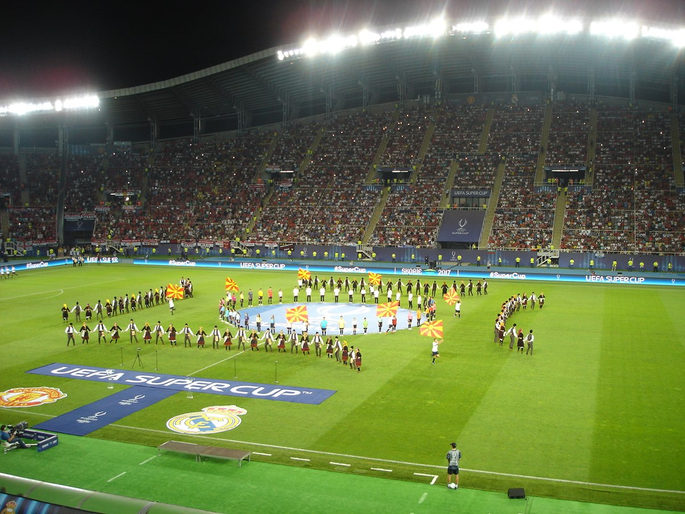
In the upper echelons of football there are a number of competitions that are taken mildly seriously by the competitors but in reality are little more than glorified friendlies. In England, for example, one such example is the Community Shield match that sees the winner of the Premier League take on the team that was victorious in the FA Cup. The UEFA Super Cup is another such example, seeing the winners of the UEFA Champions League and the UEFA Europa League go head-to-head in order to decide upon the ‘best’ team in Europe.
It’s a competition that has a fair degree of history, having been founded in 1972 and originally contest between the winners of the European Cup, which would later become the Champions League, and the victors in the UEFA Cup Winners’ Cup. It was only when that competition was disbanded in 1999 and absorbed into the then-UEFA Cup that it became a battle between the winners of the two biggest club competitions in Europe currently.
In principle, the best team in Europe at any given moment is the defending Champions League winner, given that that is Europe’s premier competition. Even so, many people felt like pitting the winner of the Champions League up against the victor in the Europa League would be a challenge that would allow the continents finest team to be decided upon definitively.
The Competition Is Created, 1972
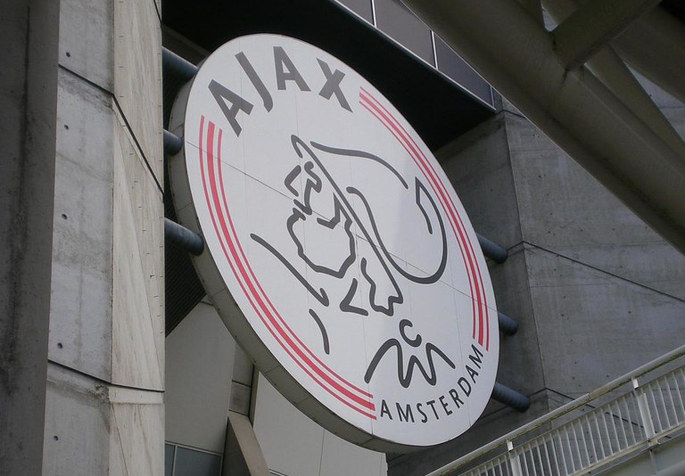
Whilst the notion of creating some sort of trophy to decide upon that definitive best team in Europe had been mooted before, it was actually the brainchild of a Dutch newspaper editor named Anton Witkamp. The Ajax fan had been watching his club going through a true golden era whilst working for De Telegraaf and wanted to be able to declare them to be the best team in Europe; not least because the national side was playing its total football on the world stage and getting much deserved acclaim for it.
It was at that point that Witkamp came up with the idea of pitting the winners of the European Cup up against the team that had won the European Cup Winners’ Cup to see who would emerge victorious, confident that it would be his Ajax team that was being led by Johan Cruyff. The problem that he has was that UEFA were unwilling to official endorse the new competition.
UEFA’s refusal came about because Rangers had been banned from European competition after their supporters invaded the pitch at the conclusion of the Cup Winners’ Cup final in the Nou Camp. They had just seen their team pip Dynamo Moscow to the trophy and were so exuberant that the captain had to be presented the trophy inside the stadium buildings rather than on the pitch. Their subsequent ban meant that UEFA couldn’t endorse a European match in which they were taking part.
Whilst UEFA’s lack of backing for the match was far from idea in terms of giving it credibility, it didn’t stop Witkamp from organising the game he’d been envisaging to prove his point. It took place over two legs, with the money for it being supplied by De Telegraaf, and Ajax ran out 6-3 winners. They still claim to be the first winners of the European Super Cup, even though it remains officially unendorsed by UEFA.
UEFA Back The Cup

Ajax won the European Cup for the second season in succession in 1973, whilst the European Cup Winners’ Cup was lifted by AC Milan. Given neither of these clubs were banned from playing by UEFA, the organisation was happy to endorse the Super Cup that season, making it the first official one in their record books. The result was no less emphatic, however, with Milan winning the first leg 1-0 but losing 6-0 at the Olympisch Stadion.
The match took place at the start of the calendar year after both teams had lifted their trophies, on the ninth of January 1974. In future competitions it would occur at the beginning of the following season, making it the curtain-raiser for European football. That was the first of numerous changes that would occur to the competition over the next few decades, not least of all the move from a two-legged affair to a single-legged tie in 1997.
Single-Legged Finals & Games That Never Happened
In 1974 there was to be no outing for the newly minted Super Cup, chiefly because Bayern Munich, who had won the European Cup, and Cup Winners’ Cup winners Magdeburg couldn’t agree on a date that suited them both. Seven years later and something similar happened when Liverpool couldn’t find time as defending European champions to fit Dinamo Tbilisi into their schedule.
Another Merseyside club in Everton missed out on playing in the European Super Cup final in 1985 after English clubs were banned from European football because of the Heysel Stadium disaster. Whilst those were the only times that no cup was played for at all, there were three occasions on which either scheduling problems or political issues meant that the normally two-egged affair had to be played over just one. In 1984 Juventus beat Liverpool 2-0, then two years later Steaua Bucharest defeated Dynamo Kiev 1-0. In 1991 Manchester United refused to travel to Red Star Belgrade because of the political trouble in the country at the time, winning at home 1-0.
The Ending Of The European Cup Winners’ Cup
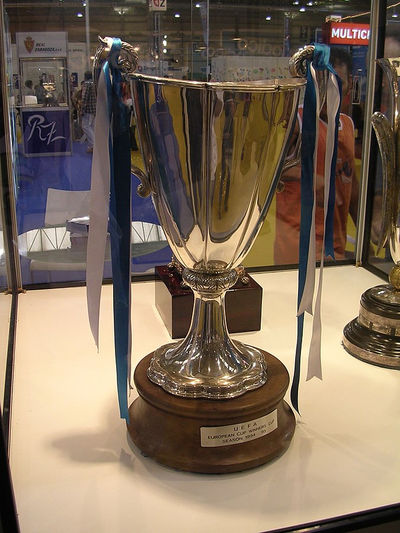
Perhaps those responsible for organising the Cup Winners’ Cup should have known that the writing was on the wall for the competition when it was renamed the UEFA Cup Winners’ Cup in the 1994-1995 campaign. Regardless, attempts to liven the tournament up failed in the wake of the revitalisation of the European Cup when it was rebranded as the Champions League. The decision to allow more than one club from each country into the premier competition meant that the Cup Winners’ Cup soon looked increasingly inferior to its senior cousin.
As the 1990s progressed, fewer and fewer clubs were interested in taking part in the Cup Winners’ Cup and public interest began to fade rapidly. When the decision was taken to expand the Champions League even further, seeing as many as three or four teams enter it from the biggest leagues in Europe, it felt like the final nail in the coffin for the ever-fading tournament. As a result, it was decided that it would abandoned after the end of the 1998-1999 season, instead merging it with the UEFA Cup.
Ironically, in a final show of strength by the Cup Winners’ Cup, the victors of that competition Lazio defeated the defending Champions League winners Manchester United 1-0 in the last ever version of the European Super Cup in its original format. It came two years after it had been decided to reduce the final down to just one leg rather than two.
The New Look Super Cup, 2000

The iteration of the Super Cup that occurred in 2000 saw the winners of the Champions League go up against the defending UEFA Cup champions for the first time. As with the 1999 final, it was the team from the ‘lesser’ competition that emerged victorious when Galatasaray beat Real Madrid 2-1. Things remained much the same until the 2009-2010 campaign, ahead of which the UEFA Cup was rebranded as the Europa League.
The result of the rebrand of one competition meant that another one also needed to bear a new name, so the Super Cup became the UEFA Super Cup officially. It is a competition that continues to reinvent itself, being played at Monaco’s Stade Louis II between 1998 and 2012 and then moving from stadium to stadium from the 2013 season onwards. It also saw its position in the footballing calendar moved when FIFA abandoned its August international friendly in 2014. Instead, the final moved from a Friday at the end of the month to a Tuesday in the middle of it.
Qualification & Format

As you’ll no doubt have figured out by now, in order to qualify to play in the UEFA Super Cup teams need to win either the Champions League or the Europa League. Those two competitions come with their own set of qualifying criteria, which you can read about elsewhere on this site. Generally speaking, however, teams need to finish high up enough in their domestic league or win a domestic cup in order to make it into the Champions League or Europa League, advancing through the rounds in order to reach the final and be victorious in it.
Most domestic leagues have a competition similar to the Super Cup, with the aforementioned Community Shield being British football’s example. That sees the winner of the Premier League go up against the winner of the FA Cup, unless the same team is victorious in both competitions. If that happens then the runners-up in the league face the defending champions in the Community Shield final. Because it’s impossible for the same team to win both the Champions League and the Europa League, no such alternative is necessary here.
That being said, if one of the winning teams either cannot play in the Super Cup final for some reason or refuse to take part in the match then the runners-up from their competition will be invited to play. If the match can’t take place when it’s supposed to because of poor weather or the pitch is unfit for purpose then the match will be played the following day instead.
When it comes to the format of the game, it follows the example of other UEFA club tournaments. Both teams are made up of eleven players as well as twelve substitutes. Of those twelve subs, three may be used during the ninety minutes of the football match. Should the game go to extra-time then an additional substitute may be used by each team.
The match is played over ninety minutes, consisting of two halves of forty-five minutes as with most regulation football games. At the end of that time extra-time will come into play if no winner can be found. If extra-time also reaches its conclusion without a definitive winner then the game will go to a penalty shoot-out.
Another interesting quirk of the competition comes in the form of the shirts that the participating teams are asked to wear. They can both wear their home kit unless they clash, in which case it is the Europa League winning team that is asked to find an alternative colour.
Sponsorship
One way to judge the extent to which a competition is taken serious and respected by the wider footballing community is by looking at the companies that sponsor it. The UEFA Super Cup benefits from the same sponsors as the Champions League, with the main ones being as follows:
- Heineken
- Nissan
- Banco Santander
- PepsiCo
- Expedia Group
- Sony Interactive Entertainment
- Gazprom
- MasterCard
There are also some secondary sponsors, such as Adidas. Adidas supply the uniform of the match officials and the ball that is used. If clubs have sponsors that conflict with UEFA’s official sponsors then they can still wear them on their jersey, as long as that is the only company’s insignia that is featured other than the manufacturer. There is some leeway in place for non-profit organisations.
Ticket Sales
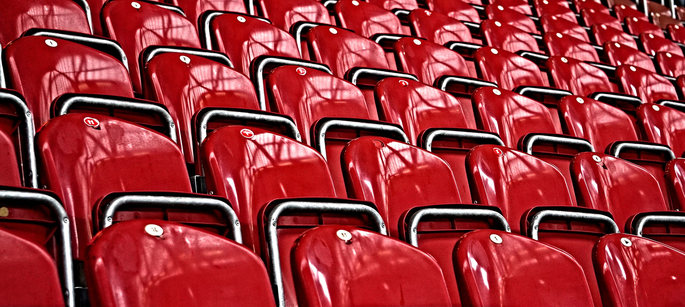
Football supporters often get frustrated with UEFA, chiefly because the governing body of European football is seen as looking after its own interests rather than those of the game’s lovers. The manner in which tickets are distributed for the UEFA Super Cup should restore a small amount of faith, however, with just 60% of a football ground’s capacity being allocated to the two participating teams.
The other 40% of tickets are sold by UEFA through an online auction, with an unlimited amount of applications given out. Individuals can make as many applications as they’d like, with a €5 administration fee taken for each ticket applied for. It means that it is not just sponsors and club officials taking up all of the tickets, with supporters of clubs other than those participating in the final able to attend.
The Super Cup Trophy
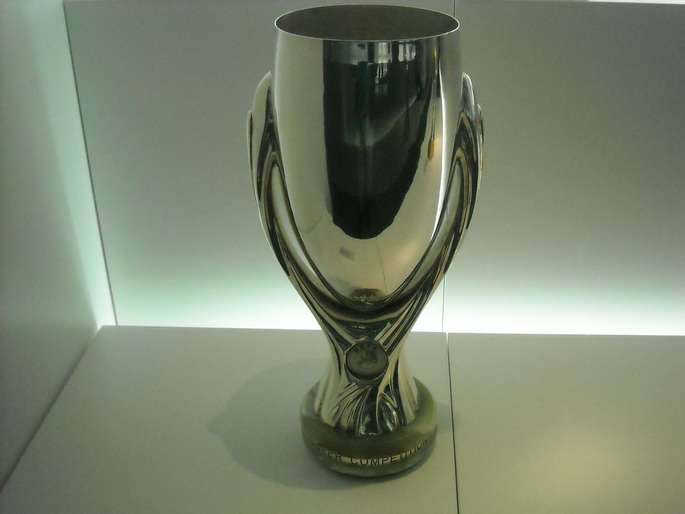
As has become the new tradition for UEFA, the organisation now retains the trophy for the Super Cup at all times. Instead of presenting it to the club that wins the match, they are presented with a full-size replica that they get to keep. The winning club also receives forty golden medals, whilst the losing club gets forty silver ones.
The trophy that is presented to the winning team now is not the same one as was presented to Ajax in 1973 and 1974. That was a significantly bigger trophy, larger than the European Cup itself. It was replaced by a plaque that bore the UEFA Emblem in gold. After that came the smallest and lightest trophy of any European club football competition, weighing in at just five kilograms and measuring just over forty centimetres.
The current iteration of the Super Cup trophy, which was introduced in 2006, weighs in at just over twelve kilograms and is fifty-eight centimetres tall. Two years after it became the trophy of choice, UEFA abandoned its rule of allowing team that had won the tournament five times in total or three consecutive times to keep the trophy. Only Milan and Barcelona have managed it to date.
Interesting Facts
the UEFA Super Cup is a trophy that has a gamut of interesting facts to accompany its story. For example, Chelsea became the first club to play in a Super Cup final as the holders of all three major European trophies in 2013, having won the Cup Winners’ Cup in 1998, the Champions League in 2012 and the Europa League in 2013. Manchester United repeated the trick when they won the Europa League in 2017. Here’s a look at some other interesting facts:
- Barcelona are the competition’s most successful side, having won the trophy five times and appeared in the Cup four more times
- AC Milan have also won the trophy five times but come second to Barca because they’ve only appeared in two other Super Cups
- Liverpool are the most successful English club, winning the trophy four times and appearing in two additional finals
- Hamburg are the ‘unluckiest’ team, appearing in the final in both 1977 and 1983 without winning. No other team has appeared in more Super Cups without winning it at least once
- Spanish clubs have won the Super Cup on fifteen occasions, appearing in fourteen more games
- Paolo Maldini and Dani Alves are the competition’s most successful players, both appearing in the final five times and winning it on four occasions
- Alex Ferguson made more finals than any other manager, appearing in the competition four times
- Pep Guardiola and Carlo Ancelotti share the title of ‘most successful manager’, gaining three wins apiece
- Nine players have scored three times in the UEFA Super Cup, including David Fairclough, Radamel Falcao and Lionel Messi
- Diego Costa scored the fasted goal the Super Cup has ever seen when he netted after just forty-nine seconds for Atletico Madrid in 2018. They went on to beat their neighbours Real Madrid 4-2
